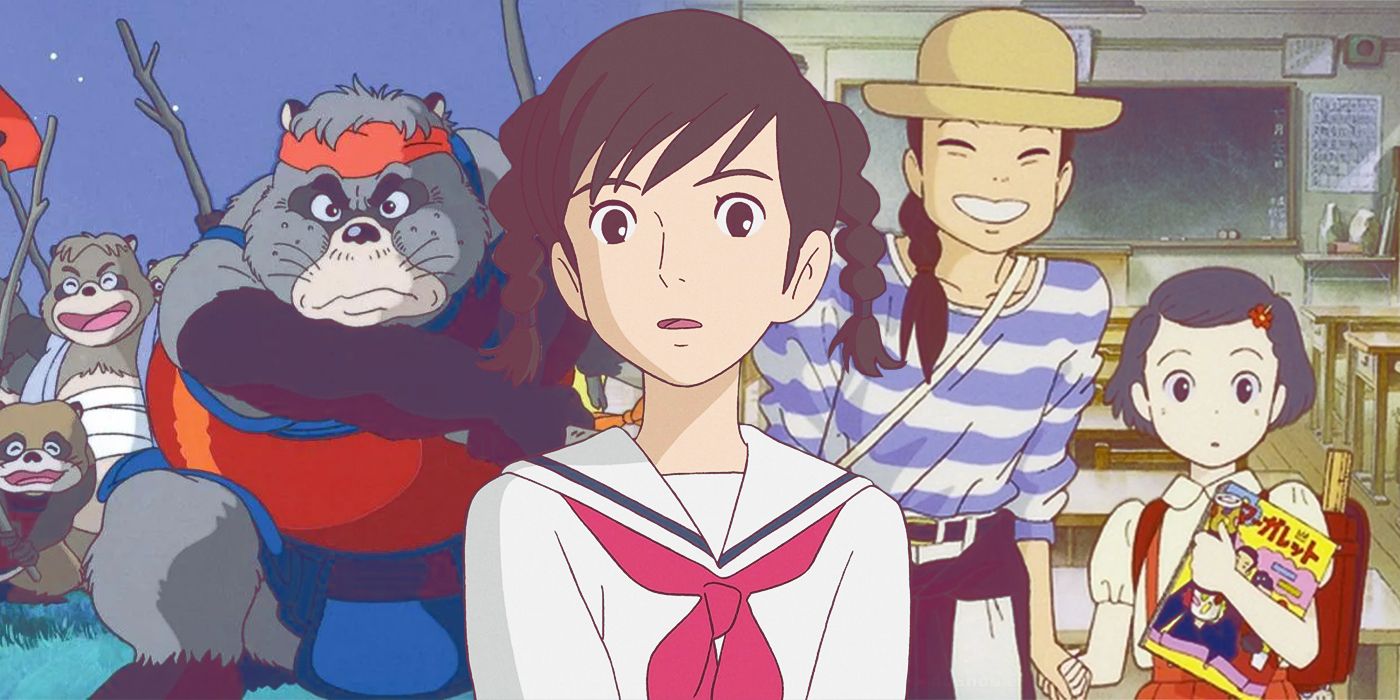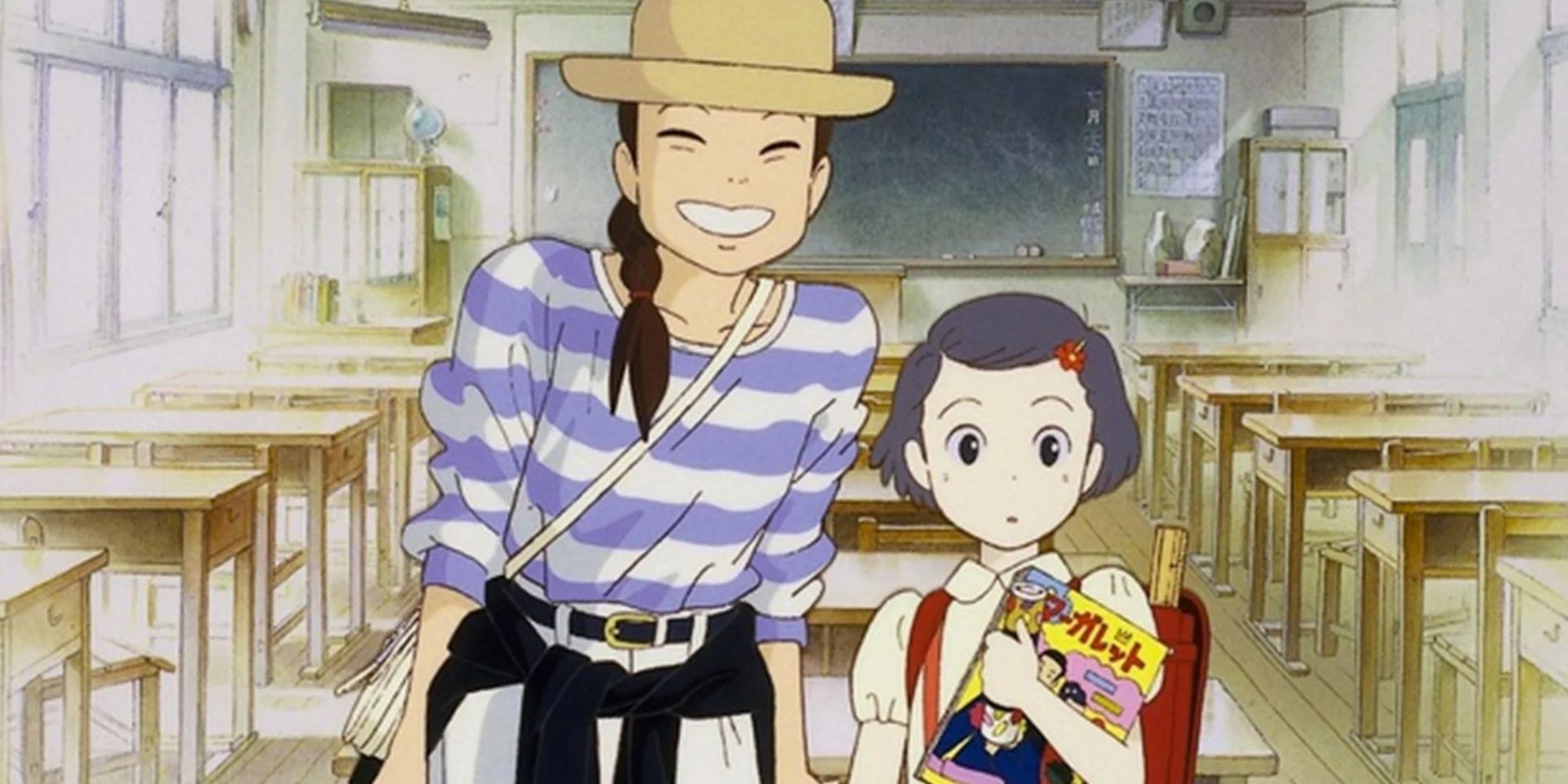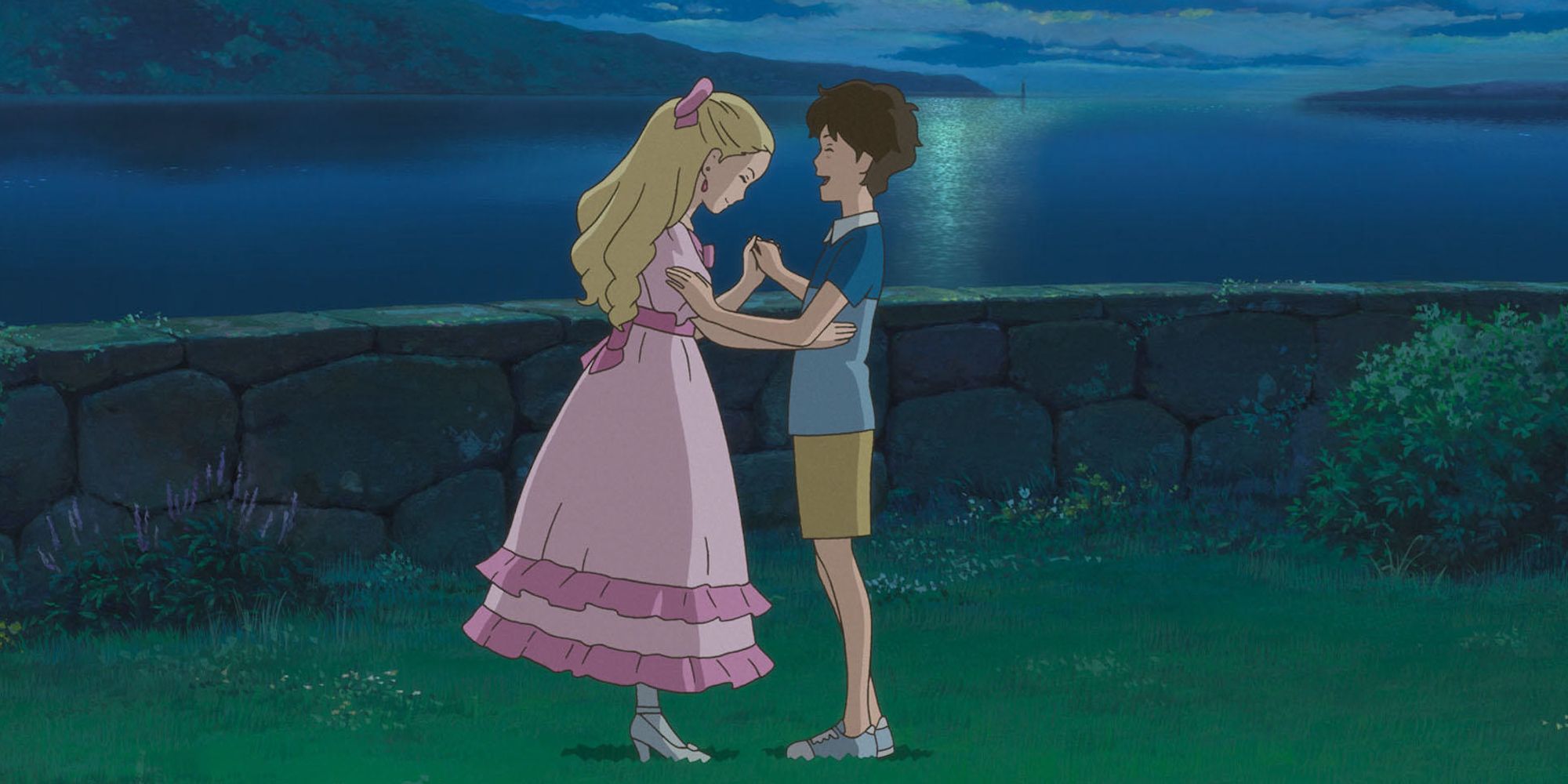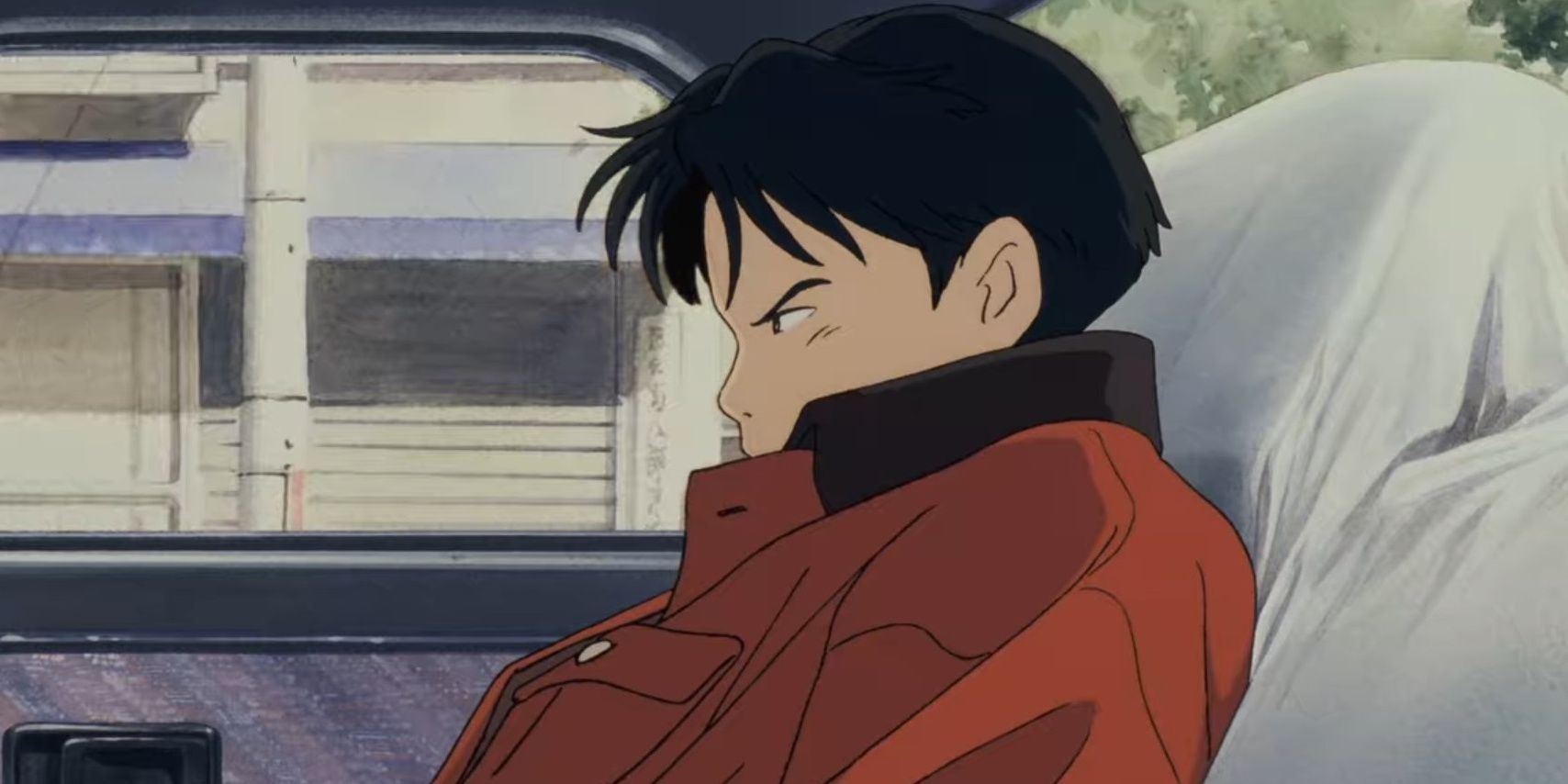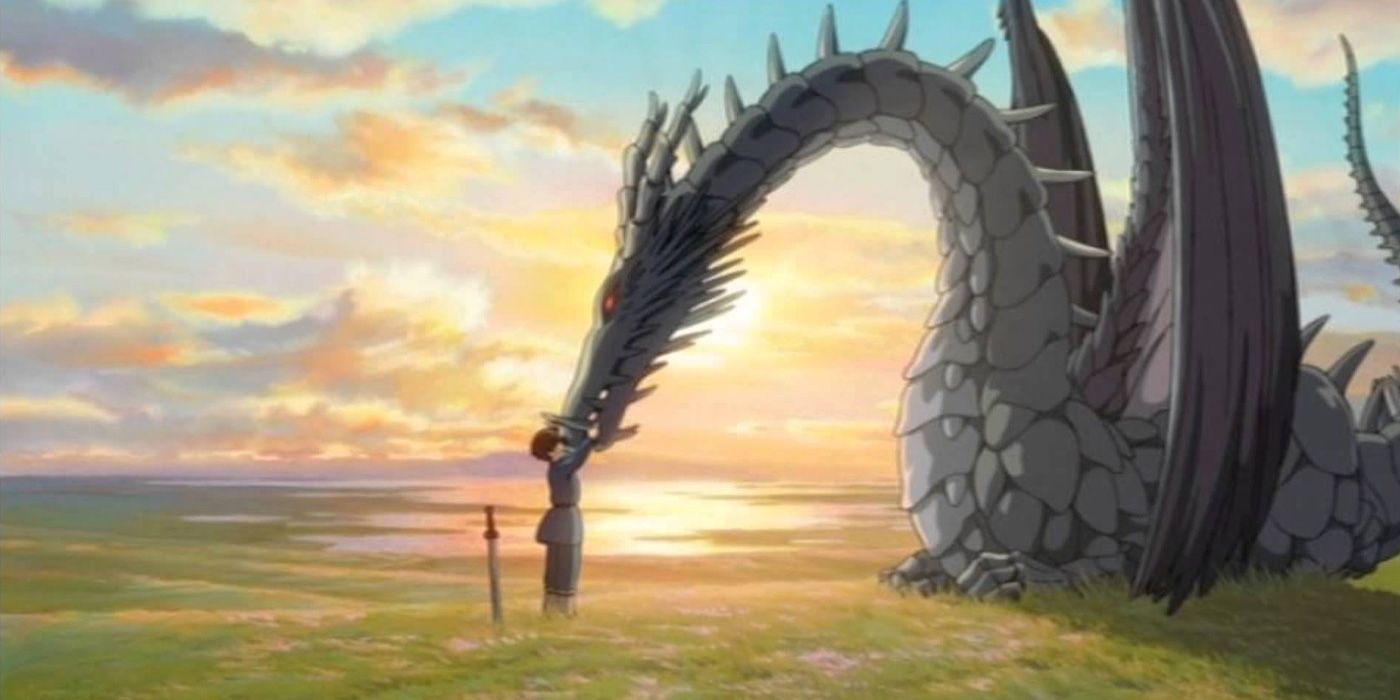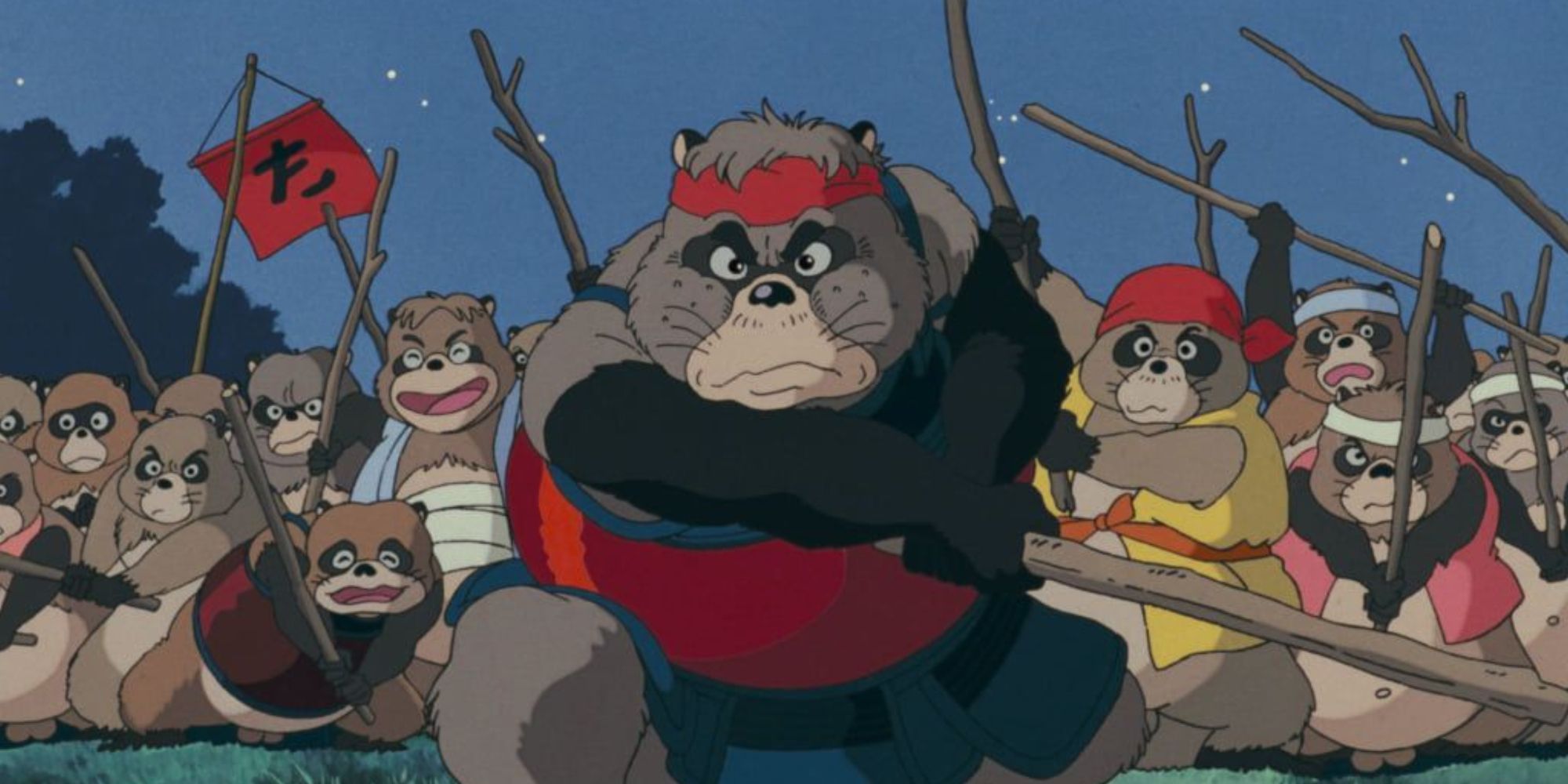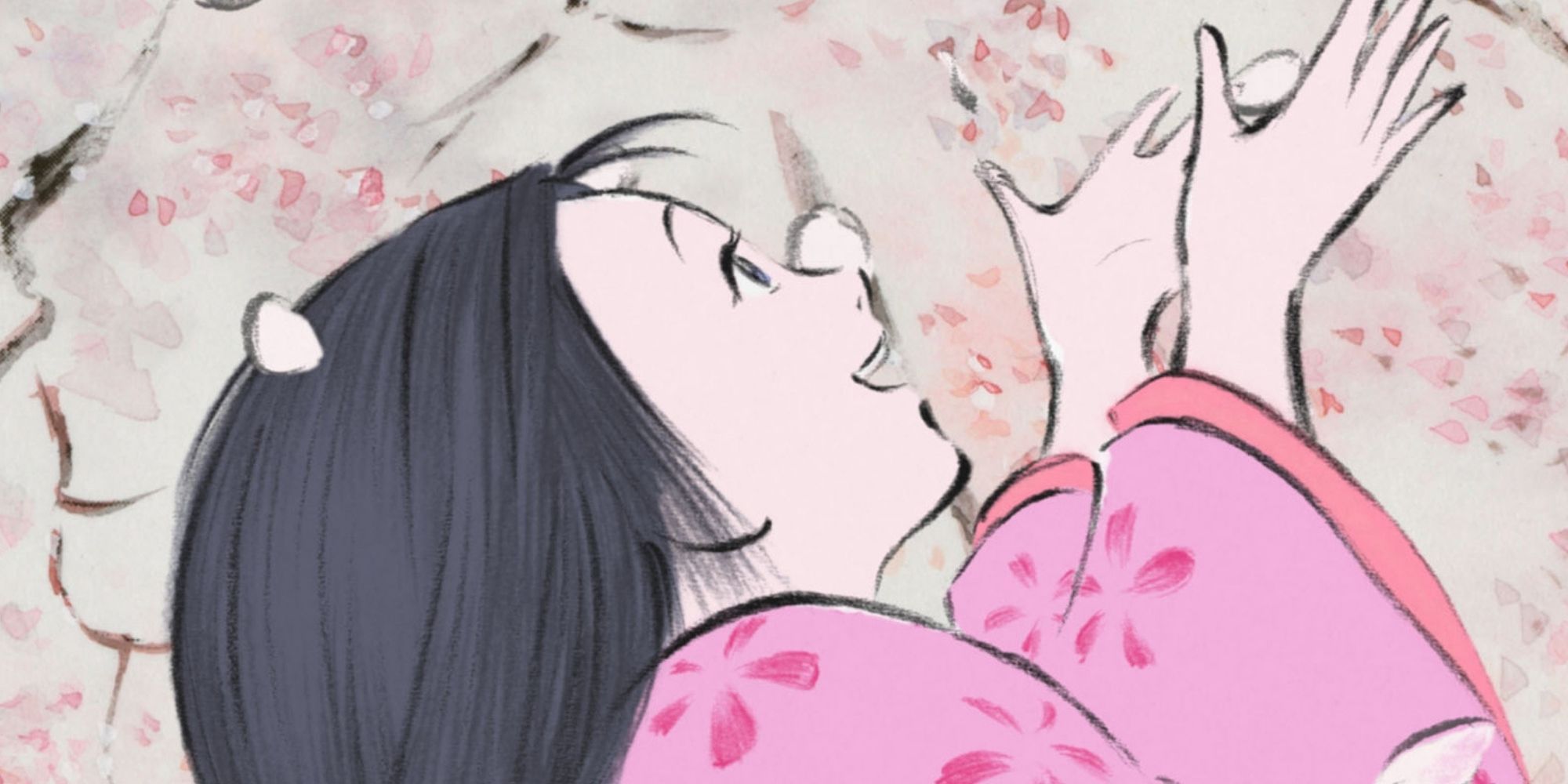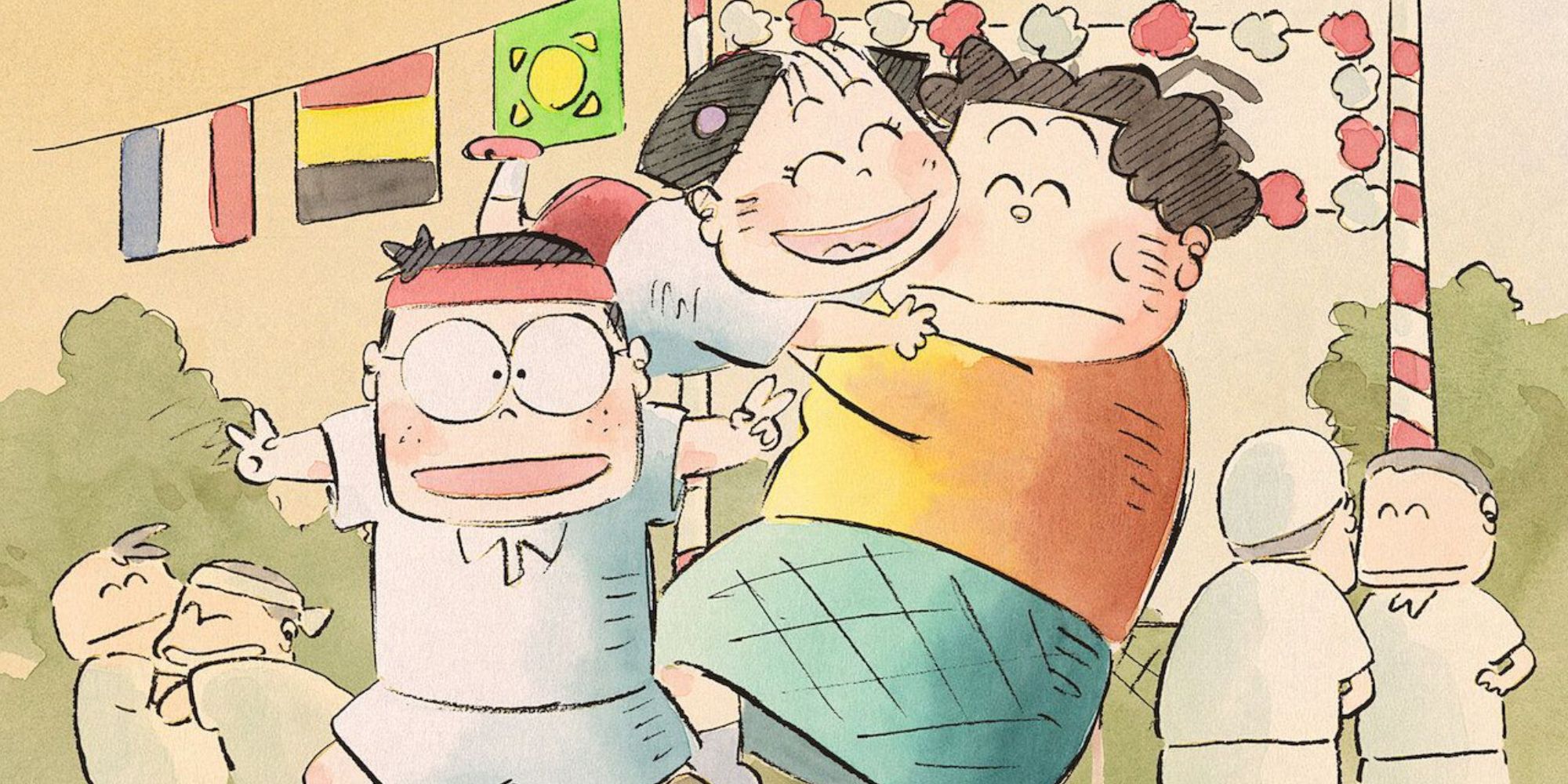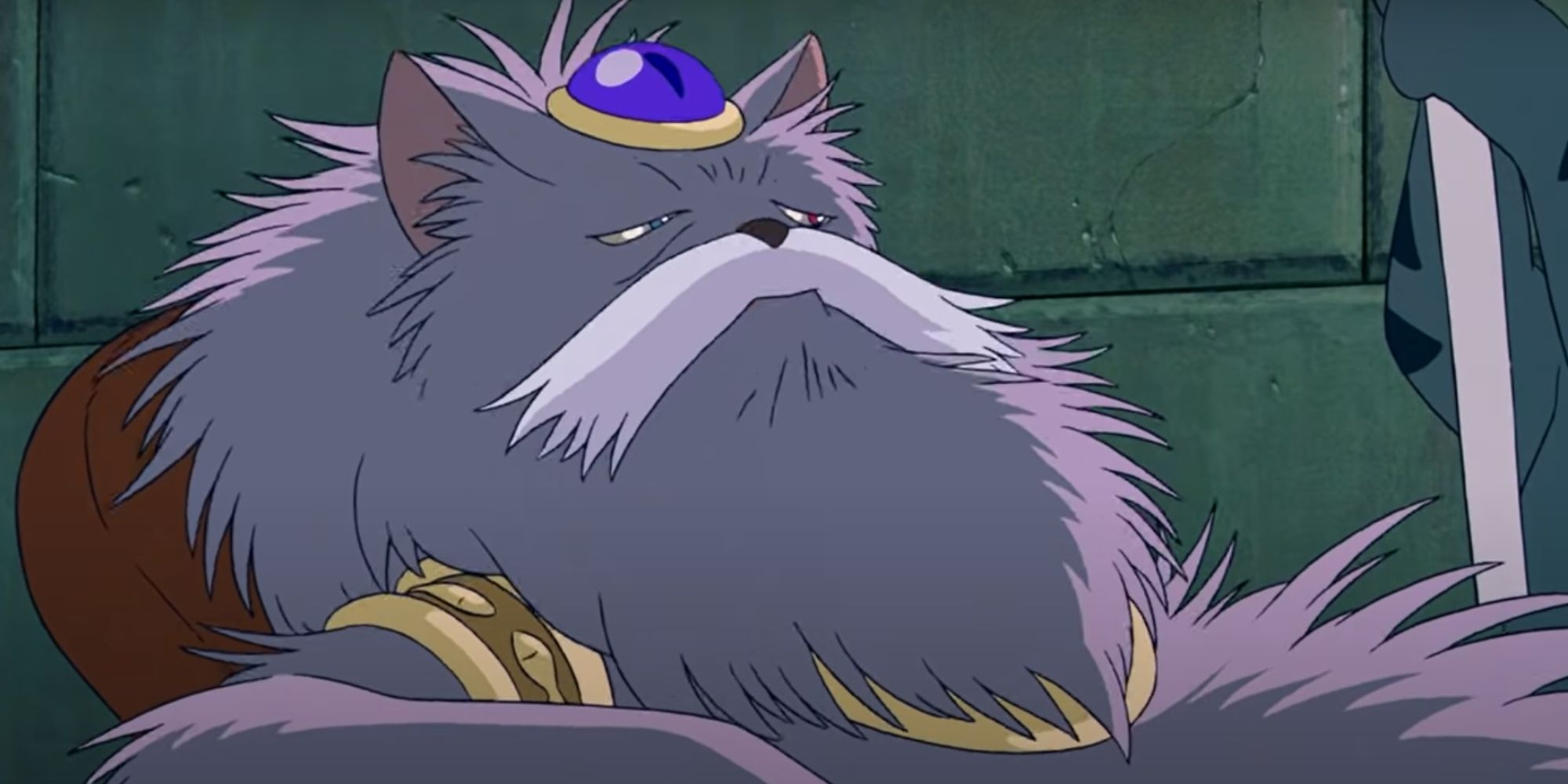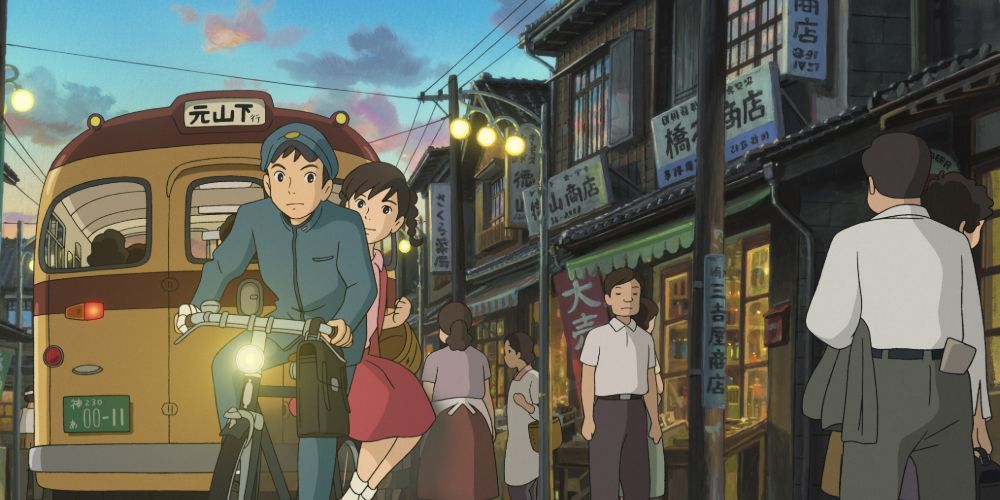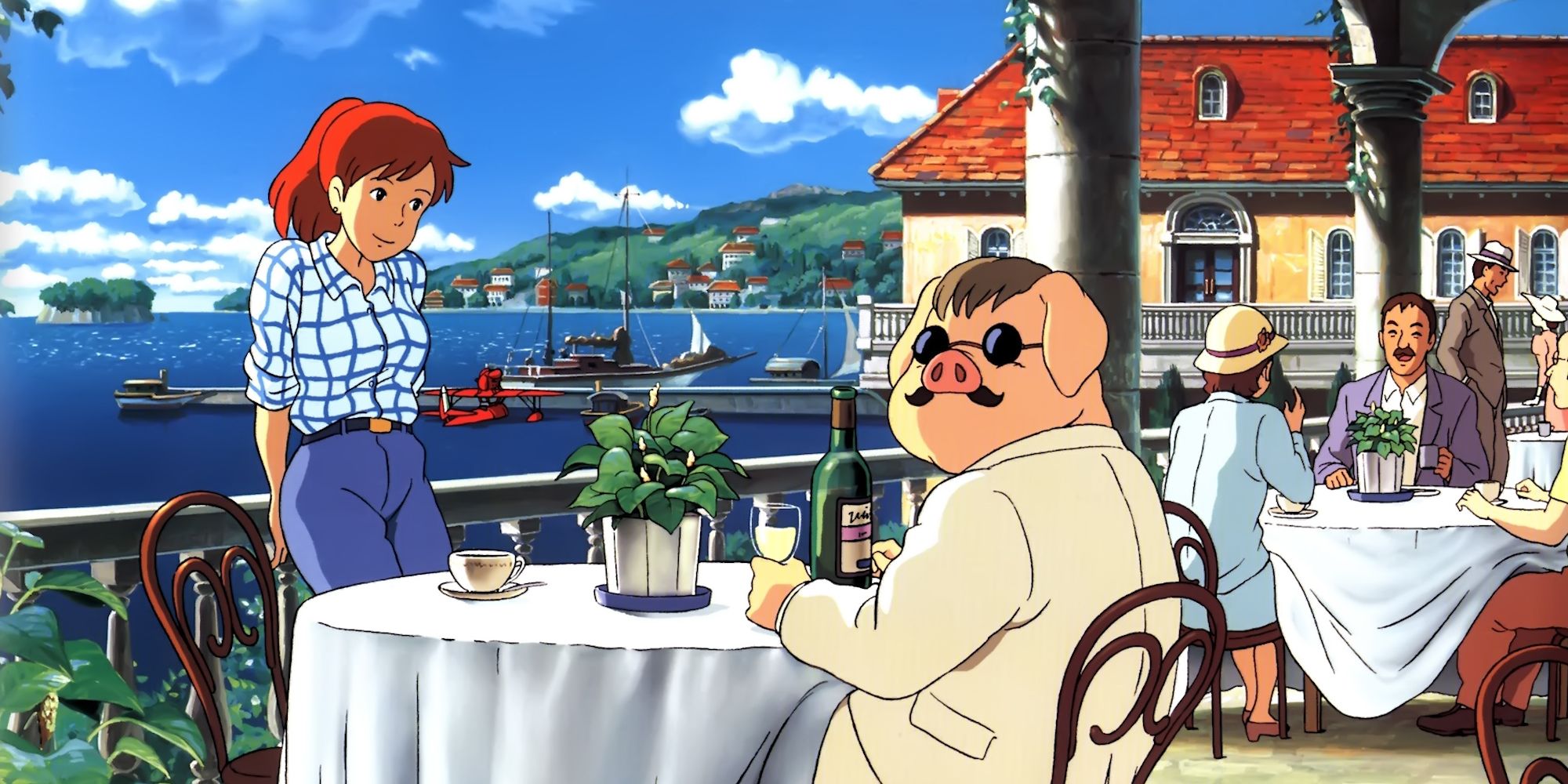The Japanese animation industry has never been the same since the release of Spirited Away in 2001, the brainchild of the master Hayao Miyazaki. Attracting a number of prestigious accolades including an Academy Award, the movie catapulted Studio Ghibli to new heights, one which made it the icon that it is today in not only the anime community but in cinema in general.
The familiar Totoro mascot on a blue background is now synonymous to nothing short of excellence owing to its production of movies like Howl’s Moving Castle, My Neighbor Totoro, Princess Mononoke, each of which have made a name for themselves and are forever etched as benchmarks for animated cinema in the contemporary popular culture, evoking praise from critics and audiences alike. However, despite the vast reach of the Studio, cinephiles mostly associate Ghibli with only the aforementioned names and tend to overlook a number of movies that the Studio has released since its inception in 1985, that are not talked about enough.
1 'Only Yesterday' (1991)
Some of the earlier works of the studio, such as the Isao Takahata directed Only Yesterday, strays from the identifiable Ghibli fantasy narrative. Only Yesterday tackles mature themes like isolation and melancholy, childhood nostalgia as it begins to fade away with creeping adulthood. The plot follows Taeko Okajima travelling to the countryside to find herself anew, all the while reminiscing about her childhood gone by and how it had shaped her perception of the various aspects of her life.
The emotional vulnerability of the protagonist runs deep in this movie as we are made to feel every little hurt and happiness in her life, as we can relate to them all. Only Yesterday has been lauded by critics for this novel approach to animation as a medium being adopted for telling such a powerful story.
2 'When Marnie Was There' (2014)
Released in 2014, When Marnie Was There was adapted from the eponymous Joan G. Robinson novel of 1967. The story follows Anna, a young girl with social anxiety and low self-esteem, whose bleak demeanor worries her foster parent Yoriko who sends her to stay with her relatives in the countryside. There she comes across the mysterious Marnie with whom she strikes a close friendship only to discover that she’s not who she seems to be and that the connection Anna shares with her is bound by the fates and runs deeper beyond her imagination.
Like any quintessential Ghibli production, the movie plays with magic realism, coalesced with an emotional motif that draws in the audience and makes them invested in the character’s narrative. When Marnie Was There was also nominated for an Oscar, proving its genius and is an absolute must-watch for all Ghibli fans.
3 'Ocean Waves' (1993)
Adapted from the 1990 novel I Can Hear The Sea, as the movie is also known in Japan, by Saeko Himuro, Ocean Waves was a project taken up by the younger artists at Ghibli. The movie presents young love in all its nostalgic glory and narrates a love triangle between Taku, Yutaka and Rikako.
Often considered as having LGBTQ undertones, debatable whether intentional, Ocean Waves narrates a love story that echoes almost universally across generations. Despite being well received by the critics and audiences, the movie failed to make a bang as loud as Spirited Away or My Neighbor Totoro, and is deemed a sleeper hit.
4 'Tales From Earthsea' (2006)
Another book adaptation, this time from the eponymous Ursala k. Leguin novel of 1980, Tales From Earthsea returns to the fantasy genre Ghibli is primarily known for. A typical hero narrative, Tales From Earthsea follows the protagonist Prince Arren as he tries to escape his desolation by venturing into the unknown and navigating a world filled with magic and dragons.
Miyazaki was lauded for his immaculate translation of the high fantasy written world, to the screen, putting his own signature Ghiblian spin on it. Often overlooked by Ghibli enthusiasts, Tales from Earthsea is the Studio’s very own Tolkienesque adventure narrative.
5 'Pom Poko' (1994)
Reminiscent of Princess Mononoke, in its depiction of the consequences of human treatment of nature, Pom Poko tells the story of mythical anthropomorphic creatures called Tanuki who are forced to adapt in the ultra-modern urban Tokyo. These raccoon-like entities are capable of shape-shifting, and they must give their all to secure their habitat and protect it from humans trying to tear it down for development plans.
The movie is heavy on referencing Japanese folklore and culture and at the same time it raises issues like the impact of rapid modernization on the environment.
6 'The Tale of Princess Kaguya' (2013)
A rendition of a popular 10th century Japanese tale, The Tale of the Bamboo Cutter, The Tale of Princess Kaguya tells the story of a tiny girl who was found in a bamboo shoot by bamboo cutter Miyatsuko who adopts her as his daughter. She grows up to become the titular Princess Kaguya.
The movie delivers a story filled with themes of feminism and the cultural norm of putting restrictions on women. It succeeds in acquainting the global audience with a piece of Japanese literary history. The director, late Isao Takahata, chose a minimalist art style instead of detailed realism, to make the audience focus more on the emotional impact of the story.
7 'My Neighbors theYamadas' (1999)
Credited as the first digital production by Studio Ghibli, My Neighbors the Yamadas, is a comedy drama structured as several vignettes depicting the daily lives of the Yamada family featuring relatable events which are relatable for families across borders.
Despite being lauded by the critics, the movie could not make an impression on the box-office. The apparent mundane life of the family is the very essence of the story, depicting the suburban vibe of Japan. It is a heartwarming film that should make it to the watch list of every Ghibli fanatic.
8 The Cat Returns (2002)
The Cat Returns serves as a spin-off to the Ghibli hit Whisper of the Heart. The movie features the enigmatic toy cat Baron as the central figure, who was introduced in the previous film, and weaves a whole new story around it.
The origin story of Baron in the first movie was already an enticing subplot, and The Cat Returns promises the same fairy-tale ambiance that the character boasts in Whisper of the Heart. The mystic feline returns with more adventures, accompanied by the new protagonist, Haru.
9 From Up On Poppy Hill (2011)
A visually striking treat, featuring some postcard worthy frames spread throughout the movie, from up on poppy hill is set in post-war Japan and flaunts a patriotic undertone underneath a beautiful story of wandering youth. The story follows Umi Matsuzaki and Shun Kazama as they discover their shared past, which forges a bond deeper than love.
The movie failed to resonate to a global audience largely because of its heavy Japanese cultural influence. If viewers are interested in taking a dive into the deep cultural sentiment of Japanese history all the while witnessing a heartwarming love story, this is the movie to jump into.
10 Porco Rosso (1992)
Based on a watercolor manga illustrated by Miyazaki himself, Porco Rosso tells the story of an Italian ex-World War I pilot who has been accursed enigmatically to become an anthropomorphic pig. The movie chronicles his life as a well renowned aviator among the folks and his adventures with pirate airplanes.
Laced with the familiar magic realism of Ghibli projects, Porco Rosso too is a visual treat coupled with a beautiful story, filled with memorable characters. Similar to another Ghibli blockbuster, The Wind Rises, the movie pays homage to iconic figures in the history of aviation, like Caproni and Piaggio.

